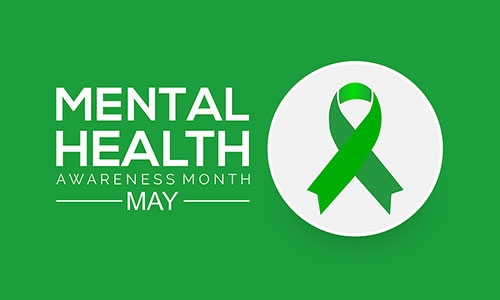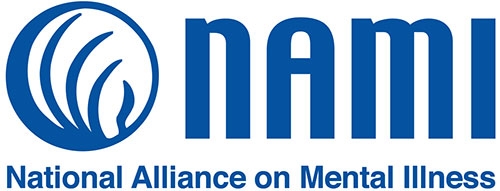You are here
Home ›Mental Health hits home: Part Four of a five-part series offering local perspectives as May is observed as Mental Health Awareness Month


by Dwight Jones
May is Mental Health Awareness Month. Discussing mental health and/or acknowledging you or someone you know may have a problem can be a difficult subject to talk about and even harder to understand. In order to try to better recognize mental health issues, The Standard is printing this five-part series throughout the month to look at how mental illness affects the local community and the resources available should you or someone you love be looking for help or information.
Part One of this five-part series told the story of a 19-year-old local college student who suffers from severe anxiety and depression, and who has used medication and therapy to get well. Part Two told the story of a lifelong Waukon resident who battled mental illness much of his life and unfortunately succumbed to it by taking his own life. Part Three described what the life of a child can be like growing up in a home with a mentally ill parent.
The sad truth is, a 50- or 100-part series could be produced on this matter and seemingly never run out of material or people to talk to. Sometime when you’re in church or a ballgame, take a look around and look at the people around you. You’ll undoubtedly spot people that you know have dealt with mental health issues.
“Oh, yeah, their son committed suicide right after graduation.” “Oh, and her dad was institutionalized back when we were kids”. Then think about how many have dealt with it in silence that you never knew about, and how many of these people themselves are fighting their own mental health struggles.
A look at mental health facts and statistics shows we are truly in a crisis. Specifically looking at those of us living in the United States, one in five adults experiences mental health illness each year. One in 20 adults experiences a severe onset of mental illness each year (major depression, schizophrenia, bipolar, panic disorder, etc….). One in six youth aged 6-17 experience a mental health disorder each year. The numbers are staggering, scary and need to be talked about.
A great resource at both the local and national levels is NAMI (the National Alliance on Mental Illness). NAMI is the largest grassroots mental health organization in America, and those of us who live in this area are very fortunate that we have a very active and knowledgeable local affiliate, NAMI Northeast Iowa. A 2014 grant received from the Winneshiek Medical Center Foundation allowed for the creation of NAMI Northeast Iowa and in 2017 the local affiliate was officially formed.
Part of the organization’s vision statement reads: “NAMI Northeast Iowa exists to provide support, education and advocacy for all people affected by mental illness in our member counties (Allamakee, Winneshiek, Howard, Clayton, and Fayette). We work collaboratively with our state and national affiliates and with other stakeholders to improve the quality of life for individuals and communities.”
We recently sat down with Bethany Ellingson, a NAMI Northeast Iowa board member and resident of rural Waukon, to discuss the work the local NAMI affiliate is doing and how they can help you if you or someone you know or love is struggling with mental health issues.
Ellingson explained that their group provides mental illness education, advocacy and support through education classes, public awareness and support groups. They have a NAMI Family Support Group that meets the fourth Monday of each month from 7-8:30 p.m. in Elgin. This group supports adults with a family member that has experienced a mental health condition. According to Ellingson, this group “helps you understand that you’re not alone” with your worry, concern and not knowing what exactly to do to help.
There is also a NAMI Connection Recovery Support Group which is a free, peer-led support group for adults living with mental illness. This group meets every Tuesday evening from 6:30-8 p.m. in Decorah.
NAMI Northeast Iowa also offers both in-person and online classes geared towards mental health recovery and awareness.
Ellingson has 25-plus years of experience working with individuals and families experiencing mental health issues. Some of the discussion with her was about her work with NAMI and some of the information was her personal opinion regarding mental health, which she definitely has earned the right to have.
Ellingson believes that there may not necessarily be more individuals with mental health but rather more of a willingness to come out of the shadows and talk about it, thus an appearance that there are more when actually it’s just becoming increasingly comfortable to share issues with others, which is a good thing. Ellingson believes that for those willing to admit they have a problem, it is much more common for those individuals to try medication vs. therapy, though oftentimes therapy either as a stand-alone treatment or provided in association with medications is what is required to help someone fully take control of their issues. She feels the pandemic definitely created an increase in anxiety and depression across the nation, including in our local area, and that we will be working through that for some time.
If you would like more information on NAMI Northeast Iowa and the important work they do, if you could use their help or if you would like to know how you can help them, more information can be found at their website at namineiowa.org, by phone at 563-293-6264 or by email at namineiowa@gmail.com.
In addition to the above listed information on contacting NAMI Northeast Iowa, if you or someone you know has mental health concerns, we encourage you to make an appointment with your family doctor or to see a therapist. Also, the National Institute of Mental Health has a website with a tremendous amount of helpful information and resources that can be found at nimh.nih.gov. In severe cases, dial 988 from any phone to reach the Suicide and Crisis Lifeline offered to everyone 24 hours of every day through the Substance Abuse and Mental Health Services Administration.

